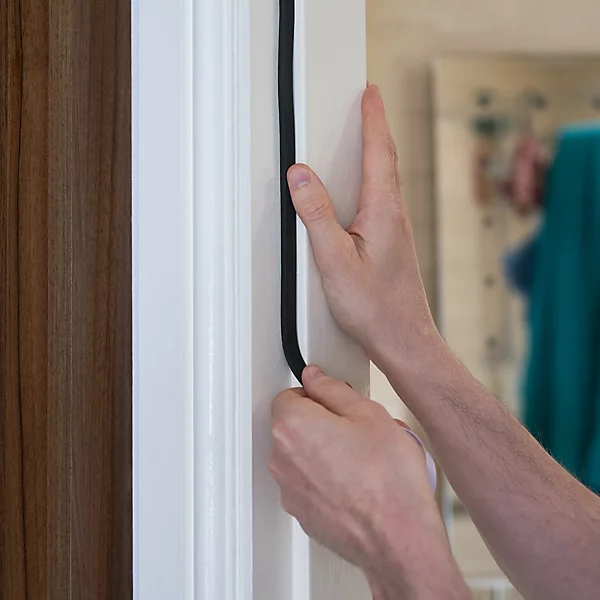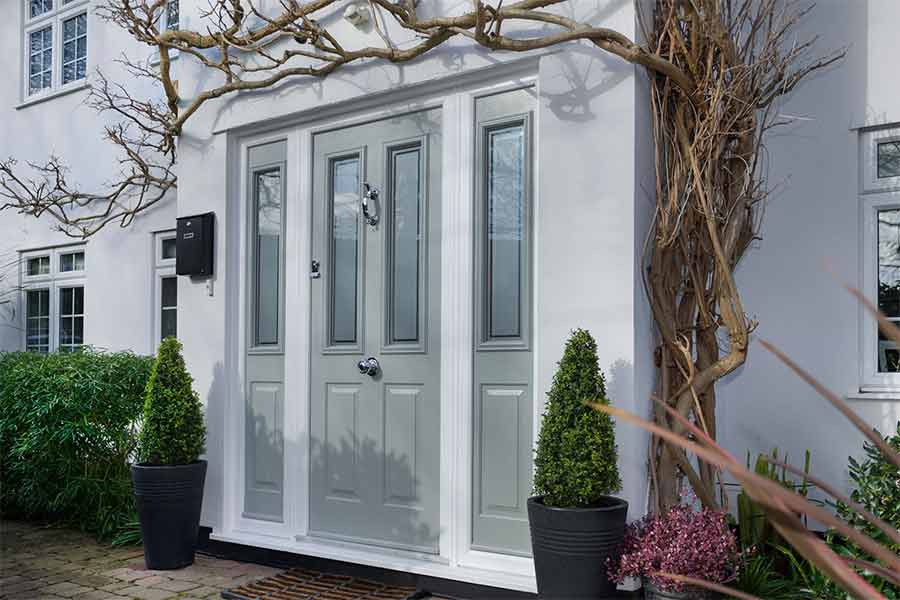When it comes to improving your home’s energy efficiency, doors are often overlooked. However, they play a crucial role in maintaining insulation, keeping your home comfortable, and reducing energy costs. Investing in energy-efficient doors is a wise choice that not only benefits your wallet but also the environment. In this guide, we’ll explore the top five energy-efficient door options for your home, their benefits, and practical advice for selecting and maintaining them.
Why Energy-Efficient Doors Matter
Your home’s doors are more than just entryways—they’re barriers against heat loss and the elements. Energy-efficient doors help maintain a consistent indoor temperature by minimising heat transfer. This reduces the need for excessive heating or cooling, leading to lower energy bills and a reduced carbon footprint.
What Makes a Door Energy-Efficient?
The Importance of Insulation
Energy-efficient doors are designed to provide better insulation, which prevents warm air from escaping during winter and stops heat from entering during summer. This insulation is typically achieved through specialised materials, core structures, and sealed edges.

U-Value and Energy Ratings
The U-value measures a door’s thermal efficiency—how well it prevents heat from passing through. Lower U-values indicate better insulation. Additionally, doors are often rated from A++ (most efficient) to E (least efficient), making it easier to compare options.

Benefits of Energy-Efficient Doors
1. Reduced Energy Bills
High-quality insulated doors reduce energy consumption, keeping your heating and cooling systems from working overtime.
2. Enhanced Comfort
No one enjoys draughts or uneven indoor temperatures. Energy-efficient doors create a more comfortable living environment by blocking out cold air and preventing heat loss.
3. Eco-Friendly Living
Lower energy usage means a smaller carbon footprint, contributing to a healthier planet.
Top 5 Energy-Efficient Door Options
Let’s dive into the five best energy-efficient door options for your home, each with its unique benefits.
1. Composite Doors
Composite doors are a combination of materials, including wood, uPVC, and glass-reinforced plastic (GRP). This blend ensures excellent thermal performance, durability, and resistance to weathering.
Key Features:
- Highly insulated core
- Wide range of designs and colours
- Low-maintenance and long-lasting
uPVC Doors
uPVC (unplasticised polyvinyl chloride) doors are known for their affordability and energy efficiency. They offer excellent thermal insulation and weather resistance.
Key Features:
- Lightweight yet durable
- Budget-friendly
- Available in various styles
Timber Doors with Insulation
Traditional wooden doors can be updated with insulated cores or double glazing to improve their energy efficiency. They provide a classic aesthetic and robust thermal performance.
Key Features:
- Timeless appeal
- Can be customised for better efficiency
- Durable with proper maintenance
Fibreglass Doors
Fibreglass doors offer superior insulation and durability while mimicking the appearance of natural wood. They’re resistant to warping, cracking, and rusting.
Key Features:
- High energy efficiency
- Low-maintenance
- Weather-resistant and long-lasting
How to Choose the Right Door for Your Home
1. Considering Climate
If you live in a colder climate, opt for doors with thicker insulation and lower U-values. For warmer areas, focus on doors that minimise solar heat gain.
2. Matching Your Home’s Style
Your door should complement your home’s architectural style. From traditional timber to modern aluminium, energy-efficient doors come in a variety of designs to suit any aesthetic.
Installation Tips for Maximum Efficiency
Even the most energy-efficient door won’t perform well without proper installation. Follow these tips to ensure optimal results:
- Hire Professionals: A skilled installer ensures a snug fit and proper sealing.
- Weatherstripping: Use weatherstripping to eliminate draughts around the edges.
- Inspect Regularly: Check for gaps or wear in seals and replace them as needed.
Maintenance of Energy-Efficient Doors
To keep your doors performing at their best:
- Clean the seals regularly to remove dirt and debris.
- Lubricate hinges and locks to prevent wear.
- Reapply weatherproofing if necessary, especially in areas with harsh weather conditions.
Common Misconceptions About Energy-Efficient Doors
“They’re Too Expensive”
While energy-efficient doors may have a higher upfront cost, they often pay for themselves over time through energy savings.
“They Don’t Look Stylish”
Gone are the days of dull, bulky doors. Today’s energy-efficient options come in sleek, modern designs and various finishes to suit any taste.
Cost vs Savings: Are Energy-Efficient Doors Worth It?
The initial cost of energy-efficient doors can vary based on materials and features, but the savings on energy bills and increased property value make them a worthwhile investment. Additionally, their durability ensures they last for decades with proper care.
Conclusion
Choosing the right energy-efficient door can transform your home’s comfort and energy performance. Whether you prefer the durability of composite doors, the affordability of uPVC, or the classic appeal of timber, there’s an option to suit your needs and style. By considering insulation, installation, and maintenance, you’ll enjoy long-lasting benefits, including reduced energy bills and a smaller carbon footprint.
FAQs
1. What is the most energy-efficient door material?
Composite and fibreglass doors are among the most energy-efficient due to their insulated cores and durable construction.
2. How do I determine a door’s energy efficiency?
Look for the U-value and energy rating. Lower U-values and higher ratings (e.g., A++) indicate better efficiency.
3. Can I make my current door more energy-efficient?
Yes, you can add weatherstripping, install a door sweep, and improve sealing around the edges to enhance insulation.
4. Are energy-efficient doors worth the investment?
Absolutely. They save money on energy bills, improve home comfort, and increase property value.
5. How long do energy-efficient doors last?
With proper care, most energy-efficient doors can last 20–30 years or longer, depending on the material.

